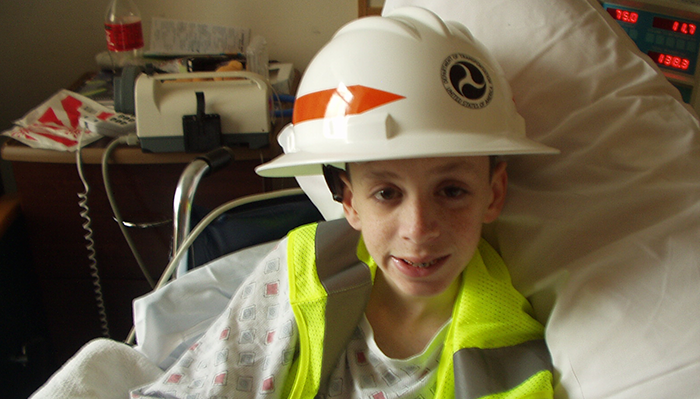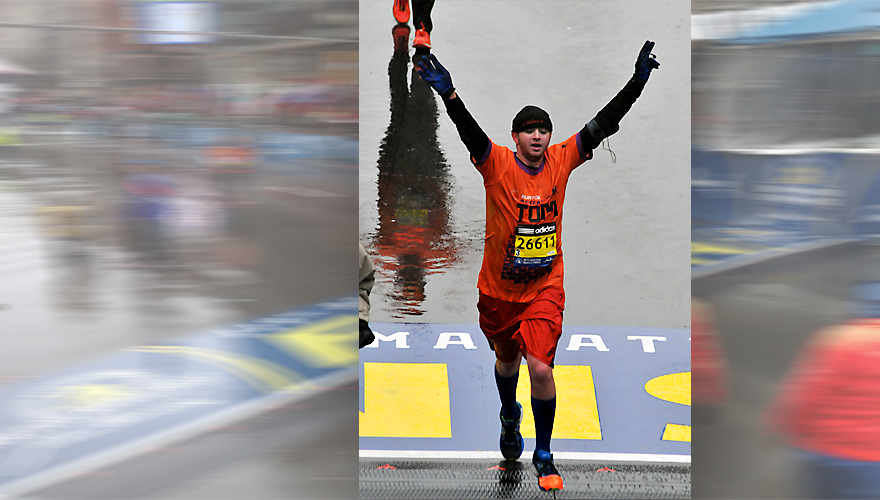Paying it 26.2 miles forward
There is a spot on the Boston Marathon route called “The Liver Mile.” It’s where the grind begins, where the storied course starts to tests runners and where legs often weary from pounding 16.8 miles of punishing roads.
Yet, it’s also where 21-year-old Tom Williams, a liver transplant recipient from Dracut, Massachusetts, first fell in love with the idea of running the Boston Marathon.
“I wasn’t thinking about the difficulty of it,” he says. “I was just thinking, I want to run for other people who are sick.”
Located in front of Newton-Wellesley Hospital, “The Liver Mile” is where volunteers hand out water and gather in support of the Run for Research team, which raises money to benefit the American Liver Foundation. For years, while someone else ran for him as part of the patient-partner program, Tom was a spectator on the sidelines.

The biggest race of his life
Nearly 10 years ago, Tom began struggling against a host of ailments — chronic fatigue, scabs on his legs and feet, jaundice and internal bleeding — all brought on by primary sclerosing cholangitis, a rare autoimmune liver disease that slowly damages the bile ducts. The only long-term solution is a liver transplant.
“It was hard for me to understand, he says. “I was very scared.”
Tom persevered through another three years of debilitating symptoms and multiple surgeries before receiving his liver transplant in May 2010. Boston Children’s Hospital surgeons Dr. Khashayar Vakili and Dr. Heung Bae Kim performed the 12-hour surgery on the then 15-year-old.
“Ever since that day, I have always thought of life as even more precious,” says Tom.

Words to live by
During his freshman year of high school, Tom remembers a speech about Columbine victim Rachel Scott and her message — to spread a chain reaction, to pay it forward and do nice things for people each day.
“That stuck with me,” Tom says. “I thought, wow, that is me. That is my goal. And, ever since I got the transplant, my goal is to carry on that message.”
This spring, Tom, now a senior at Southern New Hampshire University, won’t be on the sidelines. Instead, he’ll be running for another person with liver disease and tackling his third Boston Marathon.
“When you are running, you are putting your body through so much. It’s an emotional rollercoaster, like living with liver disease, but that feeling of crossing the finish line — it’s proof that anything is possible.”
